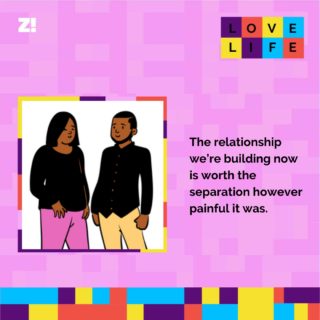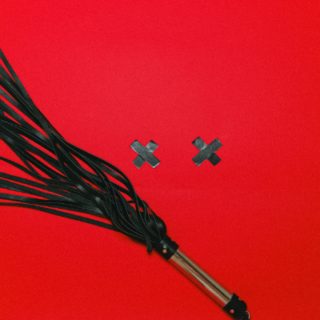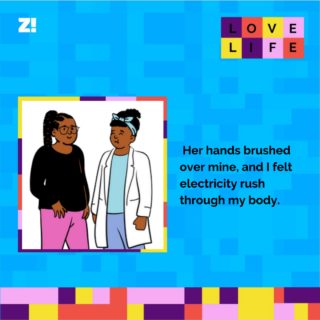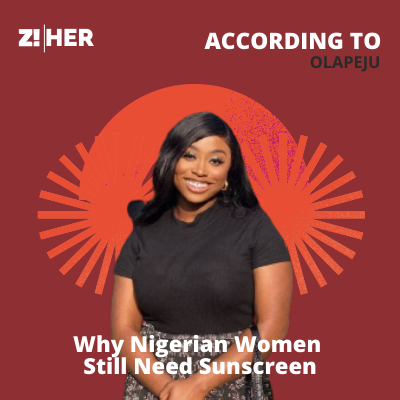
“Black don’t crack.”
“Black people don’t get sunburn.”
“Melanin protects us from the sun.”
These are some of the excuses people give when I recommend sunscreen. More than anyone, I wished our black skin didn’t crack and that our melanin was strong enough to protect us from sunburns, but that’s just not realistic.
Remember how we used to get darker during practice for inter-house sports competitions or march past events in secondary school? That happened as a result of the photoprotective factor of the melanin in our skins. Our bodies use melanin to protect us from harm. Whenever your skin feels like it’s under threat of inflammation or any other sort of damage, it produces excess melanin to fend off damage.
It’s also why every time you injure a part of your skin it gets darker when it heals. In the same way, when you expose your skin to the sun for long periods, your skins produce more melanin and thus, get darker That’s where sunscreen comes in.
RELATED: A Nigerian Woman’s Car Will Always Have These Things
Sunscreen helps to:
1. Protect us from ultraviolet radiation
Sunscreen helps to protect you from ultraviolet radiation, which is a major environmental factor that affects the function and survival of many cell types. It’s a big cause of skin cancer which is often not detected early enough — or at all — in black people, because of the myth that black don’t crack.
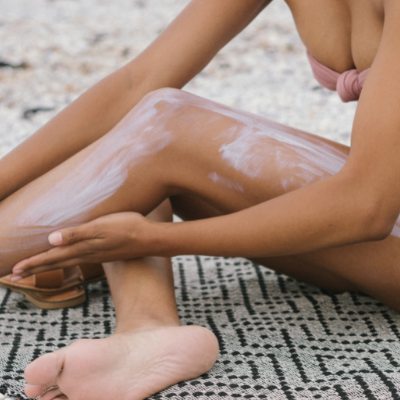
2. Protects us from premature ageing
Sunscreen also helps protect the skin from premature ageing which is caused by exposure to ultraviolet radiation from the sun. There are two kinds of ultraviolet radiation you need to be conscious of — UVA rays and UVB rays. UVA rays are ultraviolet rays that cause the skin to age faster while UVB rays cause sunburn. A good sunscreen should be able to protect you from both UVA and UVB rays. It’s also important for your sunscreen to have a sun protection factor that’s high enough to protect you. SPF 30 to SPF 50 is a sweet spot.
3. Even out your skin
Sunscreen is also important if you have a skincare routine targeted at evening out your skin tone or getting rid of specific dark spots. Sun damage is the biggest cause of hyperpigmentation and why it’s so difficult to treat.
RELATED: Skincare 101: 5 Basic Skincare Steps Everyone Should Have, According to Abiola
How to Use Sunscreen
A number of exfoliants and brightening ingredients can make your skin more sensitive to the sun. In such cases, you need to be more deliberate about using sunscreen. With that said, your sunscreen should be the last step of your skincare routine, unless you’re going to put on makeup. If you use makeup, apply your sunscreen a few minutes before you apply makeup so it sets in properly.
The best sunscreen is the one you know you can commit to using as consistently as possible. Ideally, you should use two fingers full of sunscreen every morning. You’ll also need to reapply every two to three hours because research states that UV filters in your sunscreen degrade as the day passes.
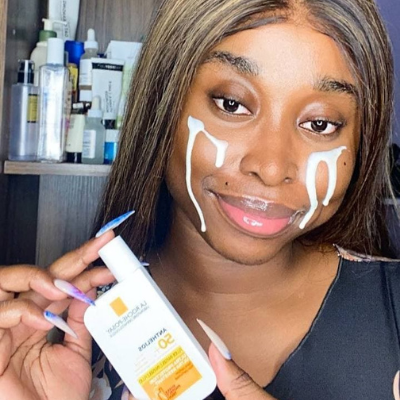
However, the two-finger rule isn’t set in stone. But you do have to make sure you’re getting an even layer of protection, particularly on your face, ears and neck.
I tend to go for sunscreen products that give off a satin skin finish. These products work well for me and my clients:
- La Roche Posay Antihelios Invisible Fluid Shaka SPF 50
- Beauty of Joseon Relief + Probiotics Sunscreen SPF 50
- Skin Aqua UV Essence SPF 50
- Kose Suncut UV Protect Gel
- Hadalabo UV White Gel
It’s also helpful to consider other forms of protection from the sun aside from sunscreen. Things like hats, visors, baseball caps and umbrellas. Remember, if you can see the sun, the sun can see you, and you know what that means.
ALSO READ: 7 Nigerian Women Talk About Living With Acne

Subscribe to our newsletter here.


